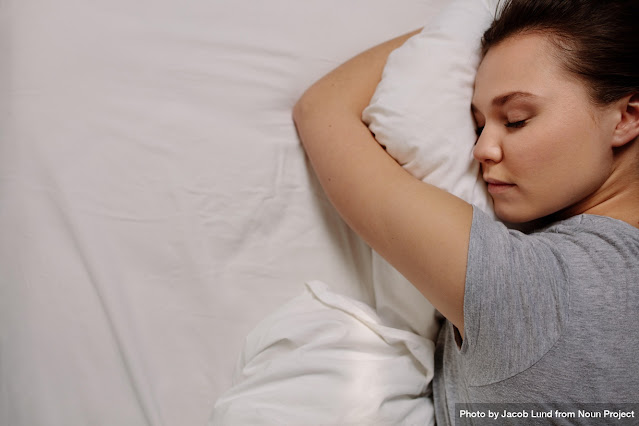Sleep and Mental Health
By Adam Toffan, M.Sc, NSCA-CSCS, CSEP-CEP,
Assistant Fitness Training and Assessment Coordinator, UM Recreation Services
We’ve all felt the effects of a bad sleep (feeling lethargic, overly hungry, lack of focus, motivation). Does poor sleep hygiene also affect our mental health, and susceptibility to depression and anxiety?
Research shows that sleep is heavily linked to mental health — so much so that researchers suggest that medical professionals analyze a person’s sleep hygiene (a set of behavioural and environmental recommendations that promote healthy sleep) before delving into a diagnosis of depression.
Seventy-five per cent of people living with depression have difficulty initiating or maintaining sleep. Prevalence in young adults (21-30 years old) is a little over half, and increases with age, up to 90 per cent in people aged 55-64. Depression affects what’s called sleep architecture. People living with depression have less short-wave activity (SWA) early on in their sleep. In people not living with depression, SWA starts higher, and decreases throughout the night as the sleep debt decreases. Antidepressant medication works to reverse this effect on sleep to correct the sleep architecture. Hypersomnia (extra sleep) is a less common symptom and is a feature of atypical depression. It’s also more prevalent in younger adults. It’s also possible to experience both insomnia and hypersomnia in the same depressive episode.
While sleep disturbance can be a symptom of depression, it also increases the likelihood of relapse or future depressive episodes. When a depressive episode subsides, but sleep disturbance remains, people are more likely to relapse and have subsequent bouts of depression. People with sleep disturbance are four times more likely to develop depression over the next three years.
While not as strongly related, there’s also a relationship between anxiety and sleep disturbance. (However, the relationship does not appear to be the same in PTSD related anxiety.) Anxiety has a lifetime prevalence of 10-25 per cent, and sleep disturbance is the second most common symptom of mental distress. A study looking at college students with depressive symptoms of similar severity showed that students who also had sleep disturbance experienced more intense and more frequent anxiety along with poorer cognitive and physical functioning.
Sleep plays a huge role in our mental health and our ability to cope with stress. While there are prescriptions that can help with sleep, these medications can result in a dependence and should be considered as a last resort. Before turning to medication for improving sleep, we need to make sure our lifestyle is giving us the best opportunity for a good sleep. Some strategies to improve sleep hygiene include regular exercise (but not too close to bedtime), limiting time spent in bed, limiting screen time before bed, sleep timing regularity, and avoidance of caffeine, alcohol and nicotine.
Nutt, D., Wilson, S., Paterson, L. (2008). “Sleep disorders as core symptoms of depression”. Dialogues in Clinical Neuroscience. Vol. 10(3). Pp. 329 – 336.
Nyer, M., et al. (2013). “Relationship between sleep disturbance and depression, anxiety and functioning in college students”. Depress Anxiety. Vol. 30(9).
Staner, S. (2003). “Sleep and anxiety disorders”. Dialogues in Clinical Neuroscience. Vol. 5(3). Pp. 249 – 258.
Stepanski, E.J., Wyatt, J.K. (2003). “Use of sleep hygiene in treatment of insomnia”. Sleep Medicine Reviews. Vol. 7(3). Pp. 215 – 225.




I found this blog informative or very useful for me. I suggest everyone, once you should go through this.
ReplyDeleteInternational Yoga Day